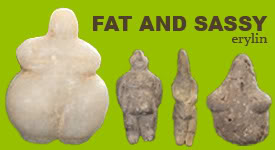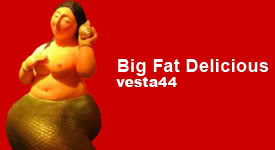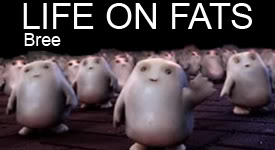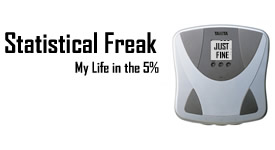Euphemism for “hungry forever.”
For a second I’m not going to question if diets help us lose weight or improve our health. Instead, I want to play a little devil’s advocate and talk about “lifestyle changes.” (I get really fussy when loosely-defined ideas are thrown around, so you can understand how much that phrase makes my skin itch.)
Depending on who you’re talking to, lifestyle can mean any combination of nutrition, exercise, and caloric restriction (CR). Well, the word on the street is that exercise and nutrition can’t help us lose weight. So, just for this moment I’m going to define “lifestyle” (when used in reference to how weight loss benefits health) to mean permanent caloric restriction.
There are three very important points that I feel are skimmed over when the topic of caloric restriction come up:
1. They mean a permanent change
I think the reason people call it a lifestyle change is because you have to do it forever. In order to continue to get the supposed health benefits or to keep off the weight, you will have to stay on a reduced calorie diet for the rest of your life. Makes sense, since your body will always been fighting to regain any weight you lost. There will never be a point where you can return to eating normally.
2. You will be hungry forever
Neuroendocrine profiles support the idea that animals under CR are continuously hungry.*
Crazy, right? In order to possibly gain a couple years at the end of your life, people have to make the choice to be hungry forever. As someone that suffers from health problems that impact my quality of life, I can’t imagine making that choice.
3. It only works if you start in youth
The benefits of CR, however, decline as the age of onset of treatment is delayed.*
If you’re in your 40s and start living on a calorie restricted diet, the best they say you can gain is about three years of extra life. To get a real benefit a person has to start restricting their diet in childhood. I, personally, have an ethical problem when it comes to encouraging our children to have what I consider eating disordered behavior in order to possibly live a couple of extra years in late life.
In conclusion
I just don’t get it. I guess it’s a limit of my perspective. As someone suffering from chronic illness since an early age, I’d much rather have quality of life now than live forever. Having said that, as much as I do not advocate caloric restriction, I have to respect the choices an individual makes for their life.
But if it’s a health benefit someone is going for (instead of an aesthetic change) I strongly recommend HAES. Plausibly the same benefit with markedly less quality of life lost.
***
*Starving for Life: What Animal Studies Can and Cannot Tell Us about the Use of Caloric Restriction to Prolong Human Lifespan




















Personally, having tried to lived on a restricted calorie diet for years at a time in order to lose weight/maintain weight loss, I’ll take eating and being fat for a few less years over living longer and being hungry that whole time. When I’m hungry, I’m a perpetual bitch; when I’m well-fed, I’m only an occasional bitch (and then only when someone steps on my toes). For me, quality of life trumps quantity of life every time.
I love the points you made above. I SO wish I could move past my self consciousness and shame over my body. Logically, I know that I can be healthy at any size (for the most part) but cannot get past the ideas that have been shoved down my throat since childhood. I suppose it will be like breaking a bad habit to over come this.
Thanks for your writing. So thought provoking!
And are the years you gain really going to be worth living? When it comes to old age and death, very few people go quietly in their sleep… far far more spend the last decade or so taking handfuls of pills, in constant pain, in and out of hospitals. And a significant number of those, the last few years are spent entirely in hospitals hooked up to machines and drugs intended to keep them “alive” at any cost.
Given a choice… I’ll take the heart attack (the one that was supposed to have killed me five years ago according to the rhetoric shoved on me in my youth about how I was going to die before I was 30).
Erin S. -
“how I was going to die before I was 30″
This is why I like to talk about the fat science. I don’t know where that exaggeration came from but it doesn’t even match what the science says.
Plus, there are various interpretations and nuances to the science that exists. Like, we know that exercise OR calorie restriction lower blood sugar and blood pressure…BUT weight loss in the long term is only proven for 2-10% of people.
Knowing that information, I’m taking the exercise route. Just like, at 35, I’m not going to be hungry for the rest of my life so that I can live an extra 3 years. I’m a practical kinda girl, like that.
Eliz
From the perspective of “what it does to a person’s psyche”, that claim (that I would be dead from a heart attack by the time I was 30) did almost more damage than anything else.
I mean, I was all of maybe 12 or 13 when school nurses, doctors, the gym teacher… basically every adult authority figure in my life except for my parents (who did a fairly good job of not pushing that on us growing up. Oddly enough, once we were adults they both started with the concern trolling crap.
Anyway, you can’t tell a kid that age that they’re going to die in just 15-20 years (instead of 60-70 average) and NOT have it do a total mind f*ck on them. Then of course their peers hear you saying that and ooh boy does the bullying kick into overdrive.
The sick thing? Up until I was about 22-23 I hated myself for being too weak willed to successfully become anorexic. Yes, that was my goal for most of my teen years and a few years of young adulthood… and I hated myself for not being able to do it.
What are we doing to our kids when they can hate themselves for failing to ignore a basic biological necessity?
Excellent analysis, as always. I think the always hungry part is the key. If you are always hungry, then you are always thinking about food, hence why CR diets will always fail. Your body will constantly be reminding you of your need to consume enough calories and it is up to will power to prevent you from doing so. But when it’s will power vs. basic drives, basic drives will always win.
Peace,
Shannon
I tried CR for awhile. The people in that program don’t eat less for weight loss, but life extension. The more I learn, the less I believed. Even if I could a gain a year of life starving, it wasn’t worth the risk. The people that do this have health problems due to being underweight. Bone lone, muscle loss. It becomes a habit to be hungry all the time as anyone has been on a diet knows. The first time you give into your hunger isn’t the worst. I found once I gave into my hunger for more than a week that I couldn’t go back to it. Then, I didn’t believe anymore.
The reason I stopped believing a study came out in Florida. I can’t find it now. Men over seventy that were normal weight or underweight didn’t live ten more years. None of them. Most of men that were overweight or heavier were around ten year later. They could figure out a reason for this. Being underweight or normal weight obviously didn’t lead to longer life.
I learned a lot from reading the medical papers on CR. It doesn’t work for humans the best that I could tell. If you want most of the ‘so called’ benefits, eat a diet low in protein, high in phytochemicals. I do that anyway. Most nutritionist agree that too much protein is unhealthy and that eating a variety of plants is a good idea. It won’t hurt you and you won’t be hungry all the time. You don’t have to be vegetarian to eat less protein. It might be worth looking into.
I have something to add about CR. One practicing CR tries to lose weight very slowly if at all. They told newbies not to lose more than two pounds a month, not a week a month. It was best to lose less than one pound a month. Reducing calories was the point, not losing weight.
Lillian-
I understand that your saying the personal intent of the two groups is different but intent doesn’t matter when talking about how a body reacts. Weather a person restricts their calories to extend life or restricts their calories to loose weight, they’re still restricting calories.